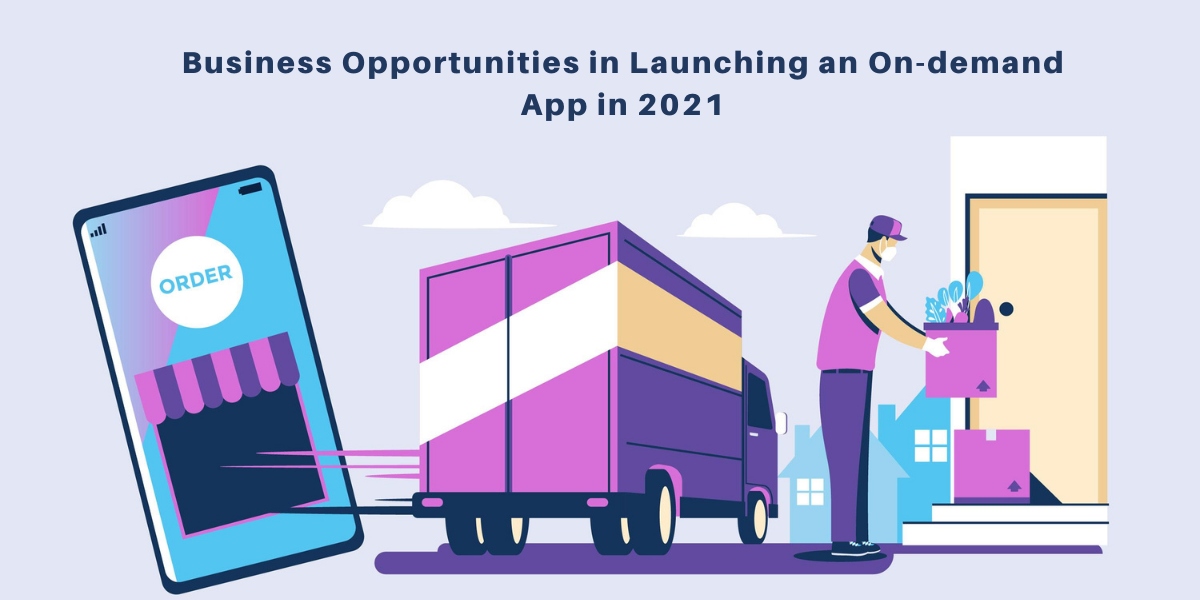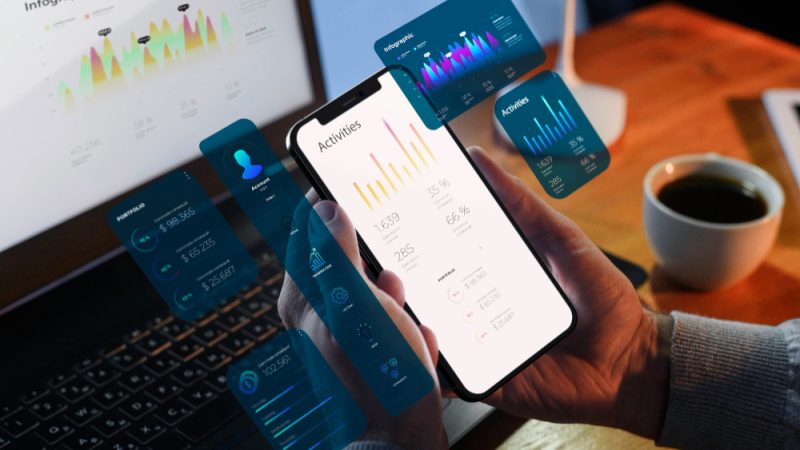Business Opportunities in Launching an On-demand App in 2021

Speed, affordability, and convenience are the main reasons behind the huge rise of on-demand delivery apps. Today, we have apps that deliver food items, groceries, medicines, and alcohol to any destination directly to the doorstep of customers.
As per a study conducted by PwC, the market for on-demand apps is all set to rise to $335 billion by 2025. Apart from the B2B (Business to Business) model, more growth will be witnessed in B2C (Business to Consumer) and Person to Person (P2P) models.
The core advantages offered by an on-demand app for business are
- Most of the on-demand delivery apps do not consider their staff as full-time employees but view them as fulfillment partners or independent contractors. This ensures low overhead costs and easy scalability in the market without compromising on any quality.
- It ensures a lot of conveniences as orders are executed immediately only when there is a request made by the users. This also saves a lot of resources as wastage is prevented by ensuring a high level of operational efficiency.
- Apart from offering instant delivery for individuals, many delivery apps have started catering to the needs of business firms too by upgrading their supply chain management systems. For example, Swiggy has teamed up with many third-party logistics enterprises for ensuring seamless last-mile product delivery.
The multiple industries where On-demand apps can make a big impact
- Healthcare – Covid-19 has cast a spot on people taking care of their physical and mental health. Like on-demand doctor booking apps where healthcare professionals offer a diagnosis to patients via video calls and audio calls, medicine delivery apps are also making waves in the market. The leading players in the industry include 1Mg, Netmeds, PharmEasy, and Medlife. The global e-pharmacy market is expected to reach a value of $177,794.9 million by 2026, with an annual growth rate of 17.3%. It will rely on the adoption of e-commerce by customers and the launch of low-cost healthcare products.
- Home services – Sometimes, a home cannot function without the services of housemaids, plumbers, carpenters, and electricians. Instead of customers contacting each service provider separately and wasting time and effort, home services platforms have made it big by having an extensive list of highly-skilled professionals available to deal with any kind of issue. The top players comprise the likes of Urban Company, TaskRabbit, Mr. Handyman, and Thumbtack. It also includes highly innovative apps like Rover that offer services like pet sitting and dog walking to users.
- Logistics – Real-time supply chain management and inventory management are the order of the day. E-commerce firms and the rapid growth of warehouses and storage facilities have increased the demand for logistics services. The on-demand logistics market will surpass a whopping $75 billion by 2030, with a 21.1% growth rate predicted every year in the next decade. Big companies like Uber, Amazon, Flipkart, and Walmart are investing heavily in their logistics operations. While the North American market will contribute the largest revenue, the Asia-Pacific region will witness massive progress with a huge upgradation in technology.
- Taxi-booking – Customers need not own their car as a high-end cab will take them to their destination on-time and in a safe manner. The well-known players in this segment are Uber, Ola, Grab, Lyft, Cabify, and Didi Chuxing. From a value of $159.6 billion in 2020, the taxi market is expected to soar to $327.54 billion by 2026 with an annual growth rate of $8.95. Factors like the lack of safety in public transportation, rising fuel costs discouraging the purchase of cars, heavy traffic congestion in cities, an increase in smartphone usage, and the rapid penetration of the internet will drive the demand for cabs. Launching an Uber-like app has become the top most ideas for entrepreneurs in 2021.
- Delivery of Products – Platforms like Swiggy and Zomato, who started their operations initially only with food delivery, have now expanded to grocery delivery and alcohol delivery. They have established partnerships with popular restaurants, supermarkets, and bars. The last-mile delivery market will increase to $66,000 million by 2026, with a growth rate of 8.9% per year. It will depend on the level of consumer demand and the introduction of advanced technologies like robots, autonomous vehicles, and drones. Since there is a huge import and export size of trade in countries like India and China, the bulk of the market share for on-demand product delivery will be retained by these two nations. The American market is also highly competitive now with popular apps like Uber Eats, ChowNow, DoorDash, GrubHub, Delivery.com, and Instacart.
Why developing a Super app like Gojek can be a big game-changer?
- Gojek is a multi-demand service app and considered an all-in-one application as users can order food, book taxis, pay online, and deliver products through the platform.
- They have more than 18 products and process 3 million orders a day.
- Gojek is planning to join hands with Tokopedia, an Indonesian e-commerce company, to strengthen its operations in the future.
Some tips to follow before creating an on-demand app are
- Understand the needs of the target audience – Failure to meet the customers’ requirements will lead to the ultimate shutdown of the delivery app. It is better to aim at densely populated nations as there is a huge user base.
- Focus on expansion plans – Every business stagnates in the absence of any concrete growth strategy. By adding new features to the platform based on suggestions from customers obtained through surveys and opinion polls, the platform can easily venture into new markets.
- Concentrate on the inflow of revenue – Since there is heavy incurring of costs like paying off salaries to the delivery staff and other employees along with advertising expenses, it has to be matched with a corresponding revenue. Some sources of revenue can be through levying commission on each order, in-app paid advertising, delivery fees, and by offering subscription plans that contain premium services to some users who are willing to pay for it.
As seen above, curating a Super App like Gojek clone will help in capturing a strong position in the market. Huge success will be achieved by maintaining loyalty with the target audience and through mass-marketing. Hence, develop a comprehensive Delivery app solution by taking into account the above-mentioned factors. This will help to beat the heavy competition in the industry comfortably.
Author Bio
Jennifer Atkinson is a growth hacker and business advisor at Appdupe who helps new entrants in the business world to adapt to the changing circumstances in the business world. She also helps the firms to best adapt to the current digital transformation and help them set up their digital version of the company.






